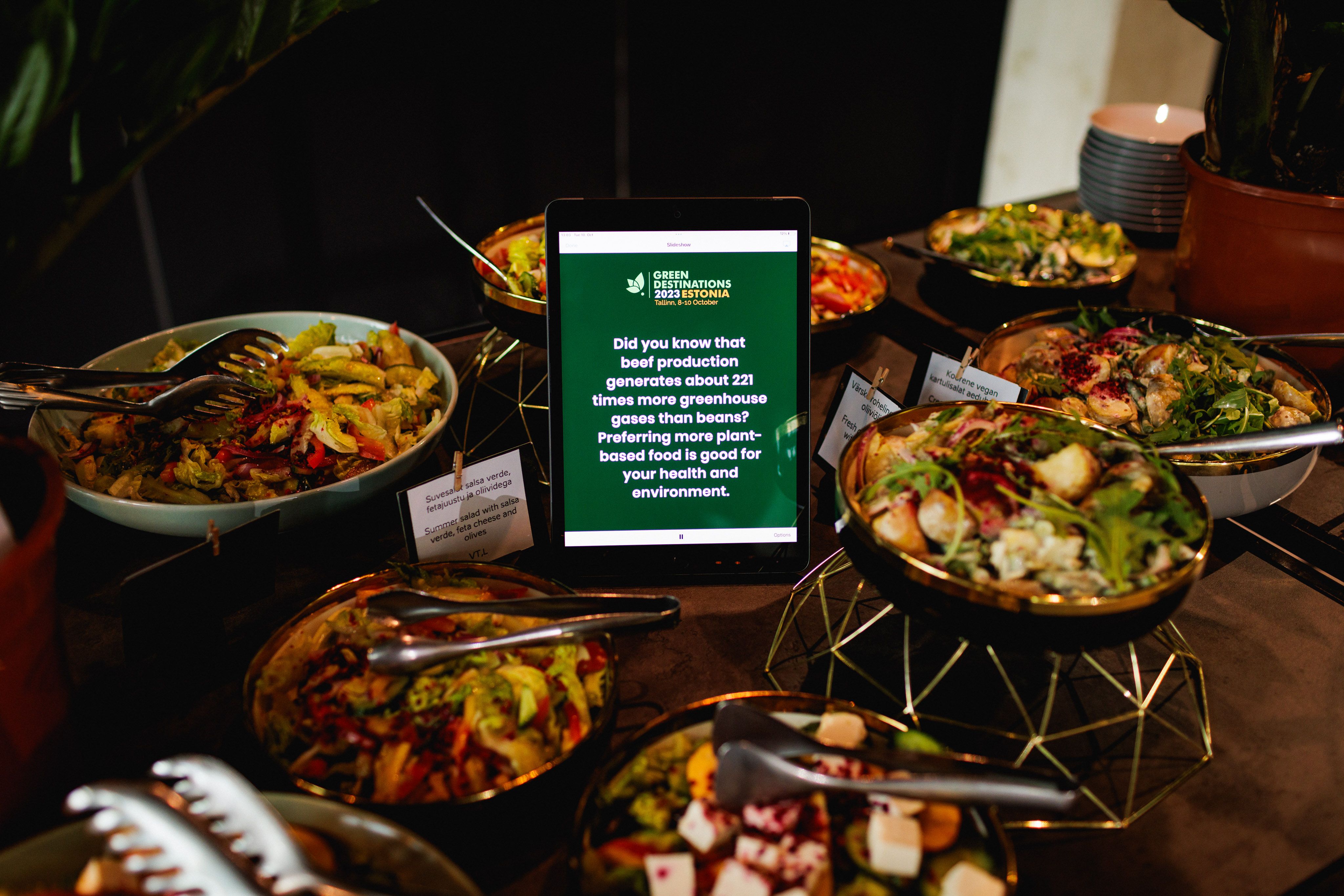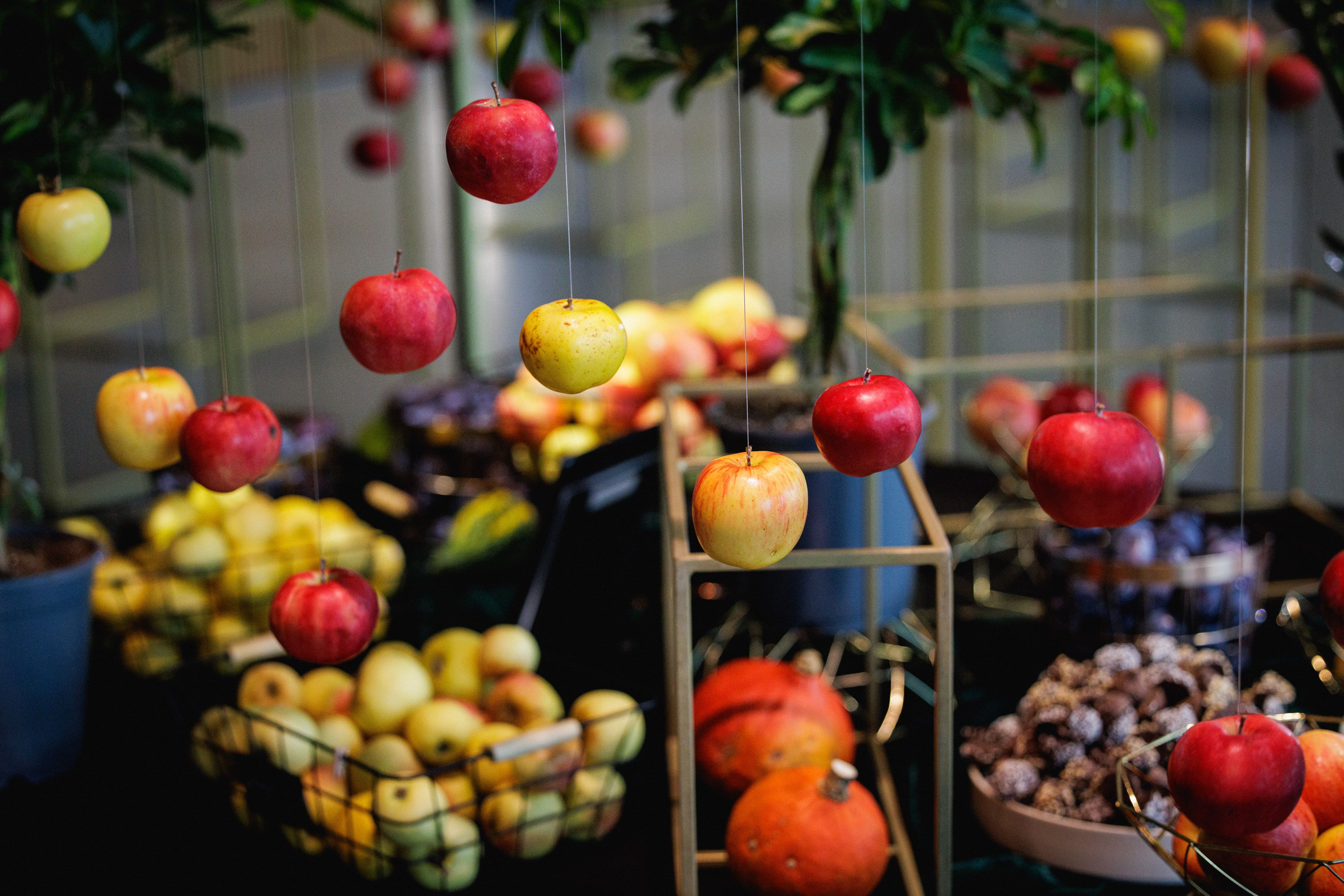
loaded:/images/placeholder.png
loaded:/images/placeholder.png
Tallinn's most eco-friendly conference showcased sustainable solutions
In October, Tallinn, acclaimed as the European Green Capital of 2023, played host to the annual Green Destinations conference. The event was dedicated to assessing and promoting sustainable travel destinations and attracted over 260 participants from more than 40 countries eager to explore sustainable tourism solutions and share best practices. Visit Tallinn and Visit Estonia were the organizers of the conference.
The conference was meticulously planned with a strong commitment to environmental sustainability, setting an example for all event organizers. Hele Lõhmus, Project Manager at Visit Tallinn, highlights the sustainable solutions that were implemented to minimize the event's environmental footprint.
Selecting a Knowledgeable Partner
The conference was expertly organized with the assistance of the local event planning company, Jolos, known for its track record in sustainable events.
Choosing an Environmentally Friendly Venue
The venue chosen for the conference was the Tallinn Cruise Terminal, one of the most environmentally friendly buildings in the city. The terminal, opened in the summer of 2021, was constructed with a strong emphasis on environmental sustainability. The project was funded through the INTERREG programme Green Cruise Port – Sustainable Development of Cruise Port Locations (2016–2019). The venue relies on green energy generated by solar panels designed for Nordic climates, and its heating and cooling systems are powered by marine energy. Natural daylight fills the rooms, waste sorting is implemented, and drinking water taps are available for participants. Since this summer, the Cruise Terminal also proudly holds the international Green Key eco-label.

Eco-Friendly Catering
Põhjala Catering served as the catering partner for the event, with a keen focus on sustainability in food and beverages. A significant effort was made to offer 100% plant-based food throughout the two-day event as this represents the biggest challenge and opportunity for reducing the environmental footprint of catering. Local organic produce was emphasized, featuring dishes such as pasta with nettle pesto, chickpea balls, and chanterelle sauce. Local Estonian apples were a hit, with over 35 kilograms consumed. Fairtrade tea and coffee were served, and a smart tablet at the lunch table provided diners with detailed information about the food, allowing international visitors to learn about Estonia and its local cuisine.

Throughout the event, single-use dishes were avoided, unpackaged foods were prioritized, and minimal packaging was used. Careful attention was paid to food quantities to minimize waste, with approximately 10% less food prepared than the number of registered participants. Any surplus food was collected by the start-up company Fudloop, and the final food waste of approximately 7 kilograms was sorted and recycled. Participants were encouraged to bring their water bottles, with opportunities to refill them at the Cruise Terminal.
The conference dinner, held at the Seaplane Harbour, was provided by MARU, the venue's catering provider, following the same sustainability requirements as the daytime caterer. An exeption was made for serving meat. While most of the dinner was plant-based, a combination of fish and poultry was also served. An array of Estonian alcoholic beverages was offered, and a delightful pop-up bar was organized by the local gin producer TOHI.
Minimalistic Approach to Materials and Decorations
The conference aimed to minimize materials and decorations. The only materials produced specifically for the event were the participants' lanyards, printed on ecological and certified paper. All event information, including the schedule and speaker details, was available on the conference website and on electronic screens at the venue. Delegates' leaflets were downloadable via a QR code. As part of the European Green Capital program, existing photo walls were reused, and only a small number of reusable decorations were used in the minimalist Nordic spaces of the Cruise Terminal.

Sustainable Transportation Choices
Tallinn has been offering free public transport to delegates of various international events, including conferences, cultural events, and sports events, for several years. Participants were encouraged to use public transport, cycle, or walk to the conference venue, and no hotel transfers were provided. Many participants appreciated the refreshing morning walk.
Measuring the Environmental Footprint
The environmental footprint of the event was measured by Klimascore, a Danish company specializing in comprehensive life cycle assessments. They accurately calculated the CO2 impact of both the guests and the event as a whole, considering transportation, catering, energy consumption, materials and waste, and water consumption. The conference received an outstanding rating of 9.5 on a ten-point scale for carbon footprint savings, indicating it was organized in the most environmentally friendly manner possible. Co-founder of Klimascore, René Jakobsen, stressed that the assesment of the conference provided positive results in sustainable choises in transport, food and energy, surpassing expectations and being on par with Northern standards. He also emphasized that measuring the CO2 impact is essential not only to showcase the organizers' commitment to combating climate change but also to inspire delegates.
Effective Communication with Participants
Conference delegates were informed about the environmental initiatives through a dedicated application created by Tripdoodler.
Additional Resources
Conference Green Destinations 2023:
https://greentallinn.eu/en/events/green-destinations/
Conference website information for delegates:
https://www.greendestinations.org/gd-2023-estonia/event-sustainability/